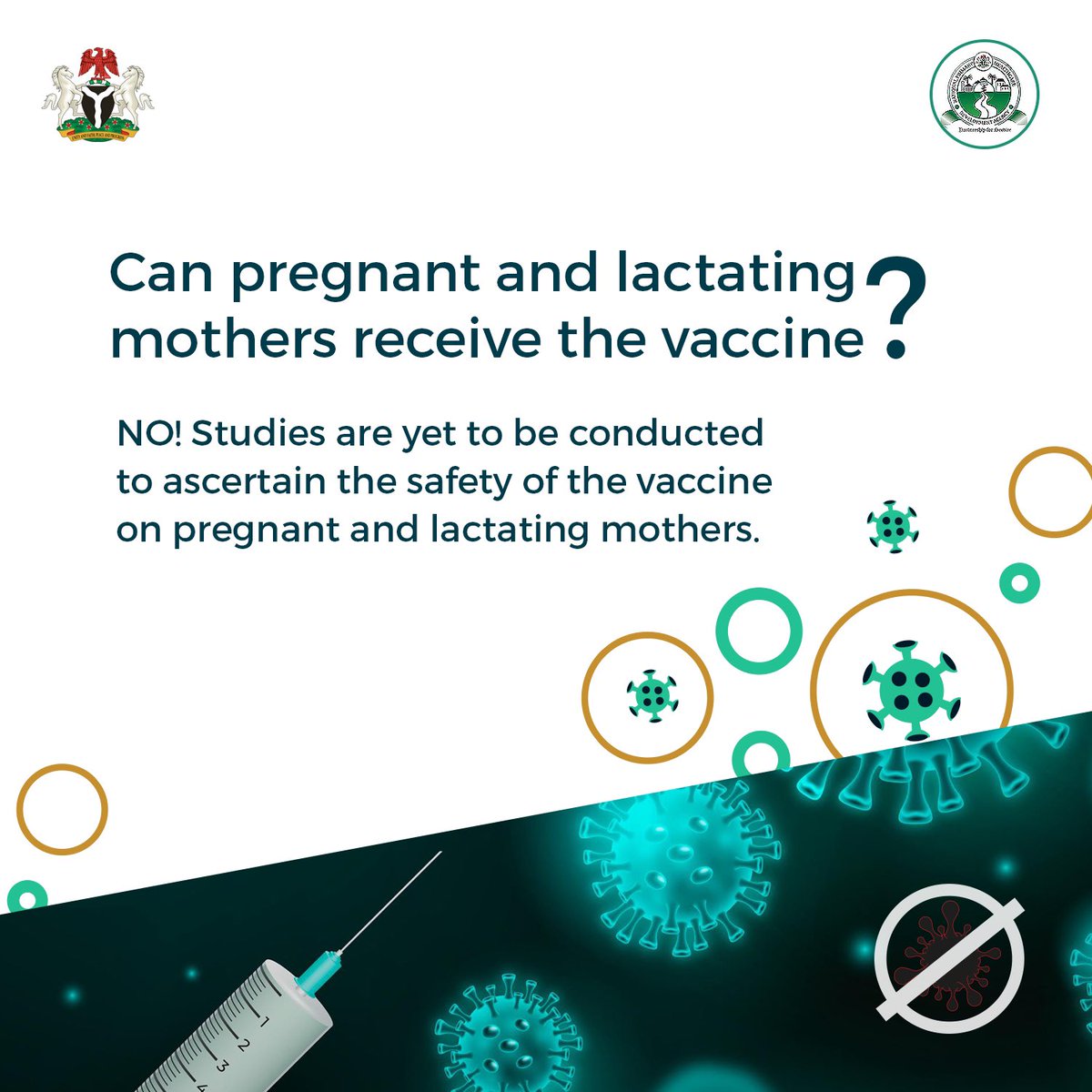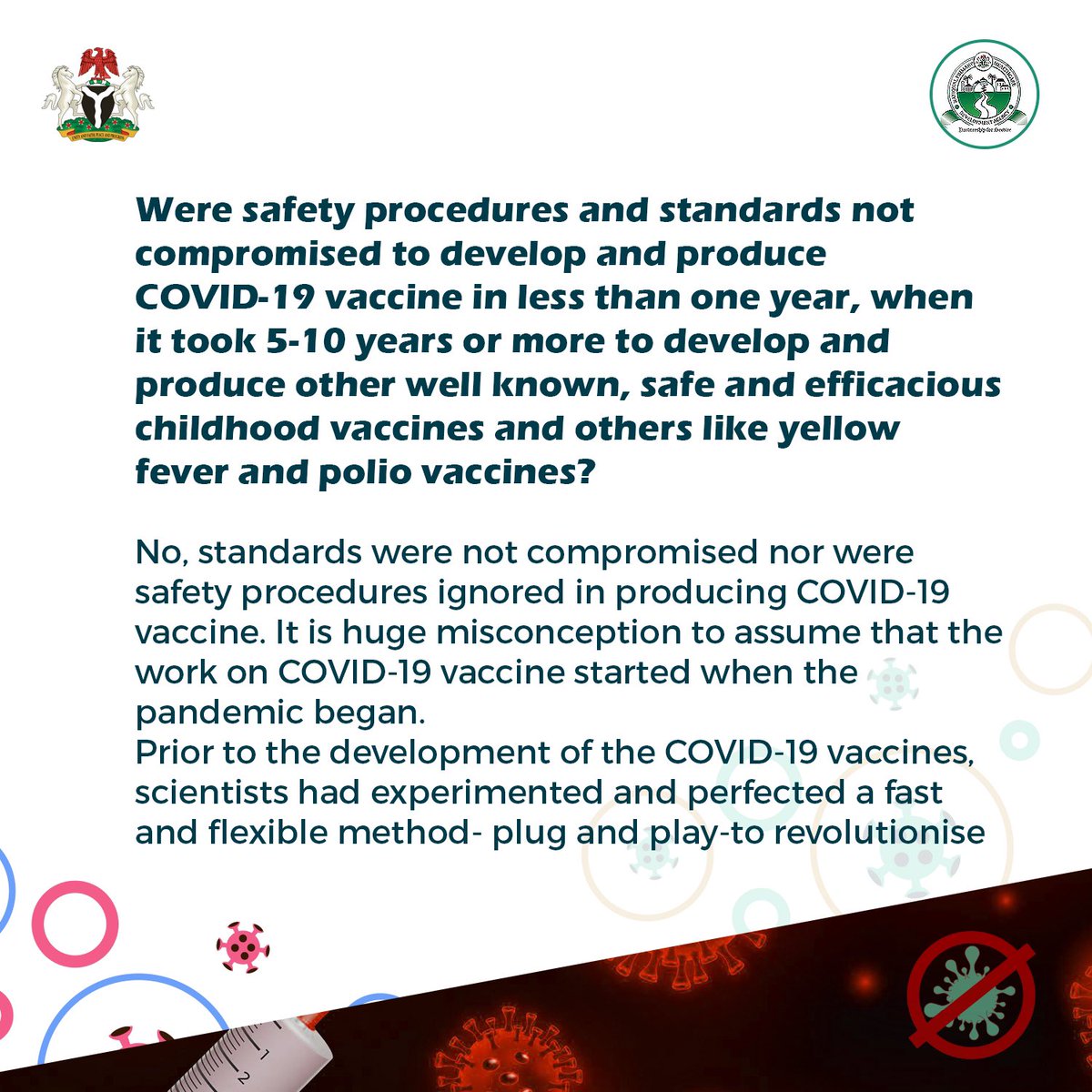
As we look forward to a healthier, brighter 2021, we are excited to share key information about the #COVID19Nigeria vaccine.
Come with us.
Come with us.

COVID-19 is the infectious disease caused by the most recently discovered coronavirus, known as Severe Acute Respiratory Syndrome Coronavirus-2 (SARS-CoV-2). This new virus and disease were unknown before the outbreak began in Wuhan, China, in December 2019. 

The most common symptoms of COVID-19 are fever, tiredness, dry cough, and difficulty in breathing. Some patients may have body aches and pains, loss of smell, nasal congestion, runny nose, sore throat, or diarrhea. 

These symptoms usually start mildly and gradually become serious. Some people become infected but do not develop any symptoms and do not feel unwell. Most people (about 80%) recover from the disease without needing hospitalization.
Around 1 out of every 6 people who get COVID-19 becomes seriously ill and develops difficulty in breathing. Older people, and those with underlying medical conditions like high blood pressure, heart problems, cancer, or diabetes, are more likely to develop serious illness.
COVID-19 vaccines aim to prevent COVID-19 disease by triggering an immune response.
COVID-19 vaccines are being developed following the same legal requirements for quality, safety, and efficacy as for all other vaccines.
COVID-19 vaccines are being developed following the same legal requirements for quality, safety, and efficacy as for all other vaccines.

Like all vaccines, the effects of COVID-19 vaccines are tested first in the laboratory, including in animals, and then in human volunteers.
The National Regulatory Authority, such as NAFDAC, is the agency in charge of evaluation and supervision of medicinal products.
The National Regulatory Authority, such as NAFDAC, is the agency in charge of evaluation and supervision of medicinal products.
It will evaluate COVID-19 vaccines against the same high standards as for all other vaccines before they can be released for use.
NAFDAC will continually monitor side effects in people who have received COVID-19 vaccines and identify and evaluate new information that arises on the benefits and safety of COVID-19 vaccines promptly.
Why should I get vaccinated for COVID-19?
It is strongly recommended that you get vaccinated against COVID-19. The vaccine will protect you from getting infected, sick, or dying. By getting vaccinated, you also protect your loved ones and your community.
It is strongly recommended that you get vaccinated against COVID-19. The vaccine will protect you from getting infected, sick, or dying. By getting vaccinated, you also protect your loved ones and your community.

Nigeria plans to introduce the COVID-19 vaccine in the 1st Quarter of 2021 to halt the ongoing spread of the virus and to save lives. Once the vaccine is available, there will be public announcements on when and where to get the vaccine ‼️ 

No! the vaccine cannot infect you with COVID-19. It is meant to protect you from COVID -19 infection. Once your vaccination doses are complete, you become protected. 

Yes. NPHCDA recommends that you get vaccinated even if you have already had COVID-19, because you can be infected more than once. While you may have some short-term antibody protection after recovering from COVID-19, we do not know how long this protection will last. 

While you may have some short-term antibody protection after recovering from COVID-19, we do not know how long this protection will last. Hence, it is recommended that that you get vaccinated because you can be re-infected.
Can pregnant and lactating mothers receive the vaccine?
NO! Studies are yet to be conducted to ascertain the safety of the vaccine on pregnant and lactating mothers.
NO! Studies are yet to be conducted to ascertain the safety of the vaccine on pregnant and lactating mothers.

• • •
Missing some Tweet in this thread? You can try to
force a refresh






